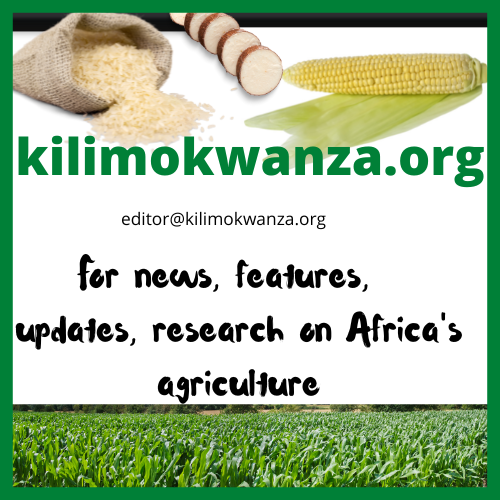
Dar es Salaam: The Deputy Permanent Secretary (DPS), Prime Minister Office Mr Kaspar Mmuya, has said that the private sector investment is vital in contributing to industrialization in Tanzania.
He challenged the private sector to play a more significant role in ensuring a year-round supply of raw materials for the industrial sector as low utilization of installed agro-industry capacity is a considerable challenge.
Mr Mmuya noted that the government has created an enabling environment for private sector investment and is committed to continuing.
The DPS made these remarks during a stakeholders’ workshop to validate Joint Agriculture Sector Review (JSR) report in Dar es Salaam on Friday, 17 Dec 2021. The study reviewed the sector’s performance for the period 2017/2018- 2020/2021.
Production of this report is in line with the commitment to enhance mutual accountability for results and actions that African countries, including Tanzania, signed under the Malabo Declaration on Accelerated Agricultural Growth and Transformation for Shared Prosperity and Improved Livelihoods.
The report was produced through a consultative and evidence-based process, which included two complementary studies: Agriculture Sector Review (ASR) and Agriculture public expenditure review (AgPER). The JSR process was led by the Prime Minister’s Office, ASDP II National Coordination Unit, and carried out by a national JSR Technical Team, composed of members from the Agriculture Sector Lead ministries (ASLMs) and the non-state actors.
ASR and AgPER studies were facilitated by four national consultants: Professor Deogratius Mushi, Professor Beatus Kundi, Mr.Selemani Omari and Dr Hussein Nassoro. The Alliance for a Green Revolution in Africa (AGRA), the Food and Agriculture Organisation of the United Nations (FAO) and the World Bank provided technical and financial support to the whole JSR process.
Evidence generated by the two studies will play a pivotal part in informing planning and decision making to improve systems for accelerating agriculture’s efficiency and performance in Tanzania, said Mr Vianey Rweyendela, AGRA Country Manager.

The ASR 2017/2018 – 2020/2021 notes that the agricultural sector made notable performance during the review period. Dr Mushi said that there is improved provision and utilization of farm inputs and services, crop production is generally increasing for both food and cash crops with set targets for 2020 nearly or fully met. He added that the country’s regulatory, institutional, and programmatic framework for agriculture is strong, well-aligned with the national vision and direction.
However, significant challenges remain, such as inadequate availability of resources to effectively implement ASDP II, low productivity levels, failure to reach performance targets in agricultural trade, among others.
Mr Selemani Omari, the lead consultant for AgPER said that the total agricultural budget allocations between 2017/18 and 2019/20 were higher than TZS 585.2 billion for FY 2015/16. He noted that despite the increased allocation, the government expenditure on agriculture has remained low at 2.9% of the government budget and the country is yet to meet the CAADP target of allocating at least 10 per cent of the government budget to agriculture.
Both ASR and AgPER call for enhanced resource allocation to agriculture which would further facilitate addressing performance challenges in the sector. Specifically, the two reports recommend more public spending to high return areas such as agricultural research, extension services, irrigation and resilience building to enhance climate change adaptation. They also recommend improvement on tracking of private sector investment and off-budget agricultural expenditures to better inform decisions.
Tanzania is implementing the Agricultural Sector Development Programme (ASDP II), which aims to transform the country’s agricultural systems and increase the productivity and income of smallholder farmers. AGRA work in Tanzania revolves around supporting ASDP II to benefit smallholder farmers.
End
